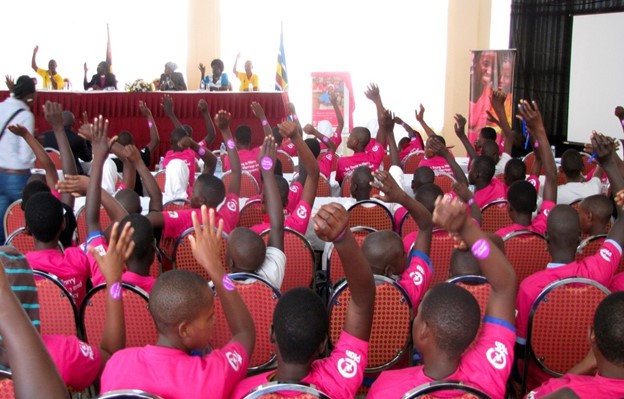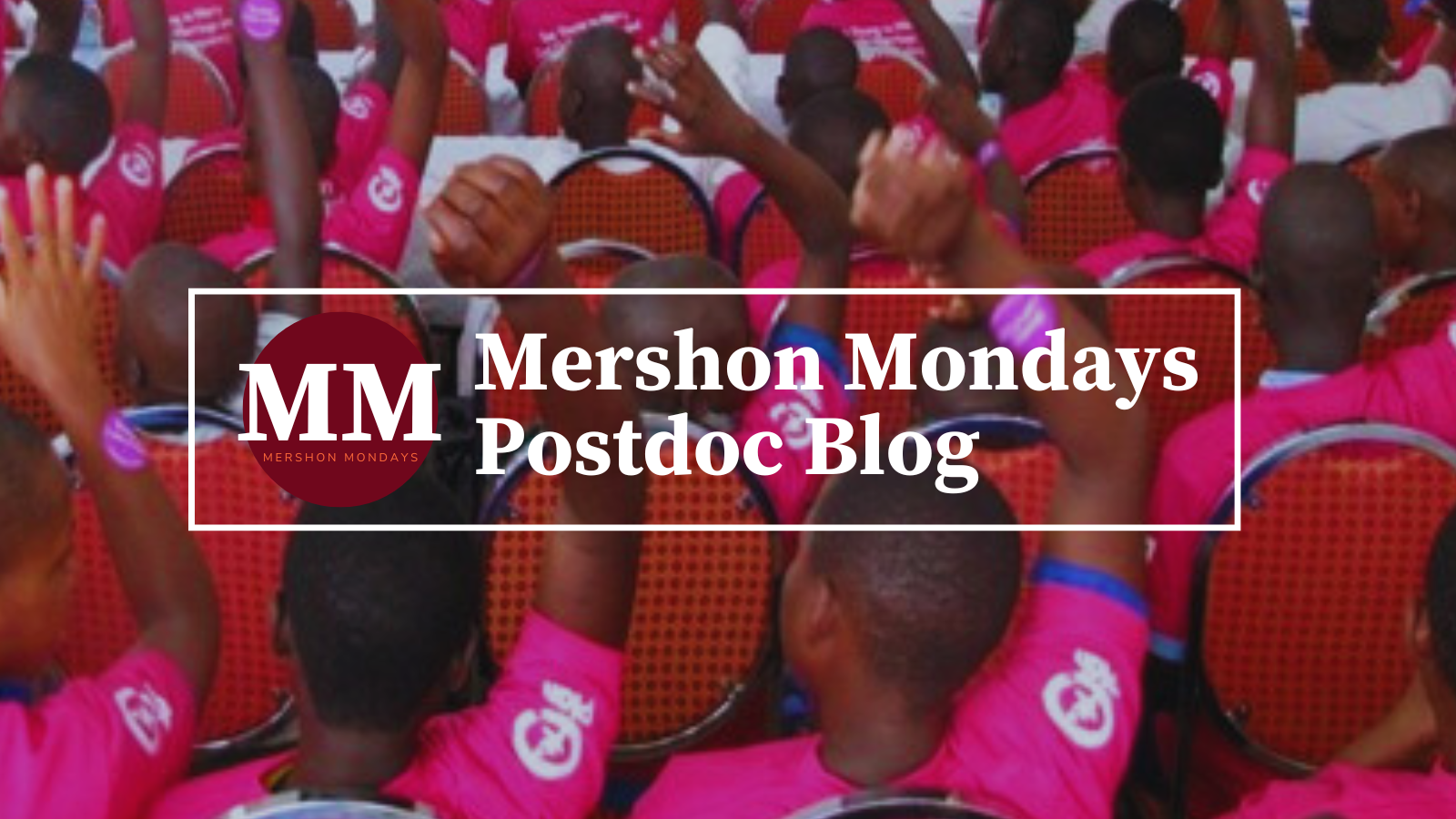Postdoc Blog: Dr. Erin Moore on “Investing in Girls: Sex, Money, and the Deceit of Development in Uganda.”
At the Mershon Monday event on March 24, Dr. Erin Moore, Assistant Professor in Anthropology, presented her Mershon-funded book project, Investing in Girls: Sex, Money, and the Deceit of Development in Uganda.
Investing in Girls focuses on one of the largest girls’ empowerment movement campaigns in Uganda funded by a major multinational NGO. According to Dr. Moore, the project focuses on Uganda as the primary research location for two compelling reasons. First, the country boasts a vibrant institutionalized women’s movement recognized as one of the most successful in Africa. Second, it is considered a “donor darling,” attracting significant international funding and attention directed towards investing in and empowering girls.

The rationale for investing in girls is underpinned by intersecting theories about adolescent girlhood from 20th-century North American social science, particularly demography and developmental psychology. Proponents of the investment view include World Bank economists who hope to redress “crises of self-esteem” among adolescent girls and claim that directing funding towards girls’ empowerment is the “most influential investment.” Dr. Moore argues that self-esteem narratives obscure the population control logics driving economic interest in adolescent girls’ lives, making investment in girls seem like an obvious universal good. Her research thus challenges any rigid and predetermined definitions and speculations about what the “global” is, arguing for an exploration of how global projects are constructed in practice, and the unintended consequences that may arise in the processes.
Dr. Moore’s work foregrounds transnational, translocal, and transcalar or “moving methodologies” that allow for a deeper ethnographic understanding of what it means to make development global, and to capture the interruptions, resistance, and transformations that occur as global initiatives unfold. Dr. Moore’s research journey began in 2009 during an internship at the Toronto headquarters of the NGO she decided to study. Having learned the “techno-professional language of development” and how NGO officers demonstrate their expertise around the world, Dr. Moore had to move across various developmental spaces. Her ethnographic movements eventually connected her in 2011 with an elite Ugandan NGO officer from the organization’s subsidiary office in Uganda. Dr. Moore followed this NGO officer to various campaign meetings and workshops, including in New York, Addis-Ababa, and Kampala. From 2012 to 2013, and during shorter visits from 2015 to 2019, Dr. Moore followed the girls’ empowerment movement campaign from NGO meetings to training workshops, and into the lives of the adolescent girls who were at the center of the campaign. Through her “moving” ethnographic methods, Dr. Moore collaborated with interlocutors and friends, establishing long-term engagements that enabled her to explore “development from below.”
Dr. Moore’s key findings build on a powerful concept of “detoothing”—locally called okukuula binnyo (to extract a tooth). She uses “detoothing” as a metaphor to illustrate the strategies young women use to navigate both the sexual economy and the NGO landscape. This concept highlights the everyday “extraction” strategies used by young women, such as deferring sexual promises to extract financial support from their suitors. In Bwaise, Kampala, for instance, Fatma’s playful flirtations with chipatti (flat bread) vendors ensured she received extra pieces. Others like Shakira, “the most experienced detoother,” maintained extensive networks of suitors, from local ones to foreign nationals from Germany. These detoothers’ gainful seductions and flirting could last from a single evening to years of long-term relationships. Their art of “detoothing” became a method for young women to gain resources from wealthier patrons whom they perceived as “investors.” With other actors in the sexual economy like “sugar daddies,” young women leveraged their perceived sexual potential by enticing financial contributions while making promises they may never fulfill.
Similarly, in their “detoothing” engagements with NGOs—whether led by unscrupulous middlemen or more reputable organizations—young women engaged in a parallel “structure of practice.” In their pursuit of NGO resources, they projected a vision of themselves as empowered individuals ready for transformation, further complicating the narrative of what empowerment truly means in Uganda. Dr. Moore found that in places such as Bwaise, where financial resources intended to assist girls seemed to empower men instead, “detoothing” emerged as a pragmatic extraction strategy. This irony raises critical questions about the efficacy of the sustainable development paradigm, which often inadvertently channels aid away from those it aims to support. Dr. Moore argues that NGO middlemen engaged in their own form of “detoothing,” drawing salaries by promising transformative change while often neglecting fundamental rights and ideologies foundational to girls’ empowerment. Her findings provide fresh insights that critique conventional wisdom about globalizing projects such as girls’ empowerment investment, highlighting how ordinary actors engage with and remake the “global” from below – from the entangled sexual economy and NGO landscapes of Kampala.
Mershon Monday Story by Postdoctoral Fellow Nicholas Nyachega, in collaboration with colleagues Julia Marino and Helen Murphey.

